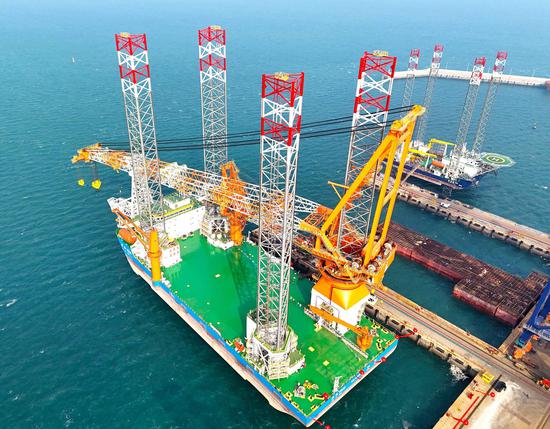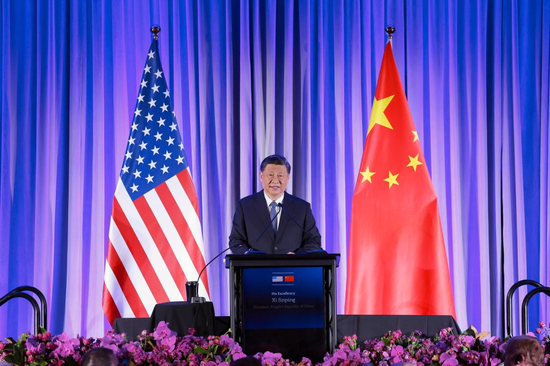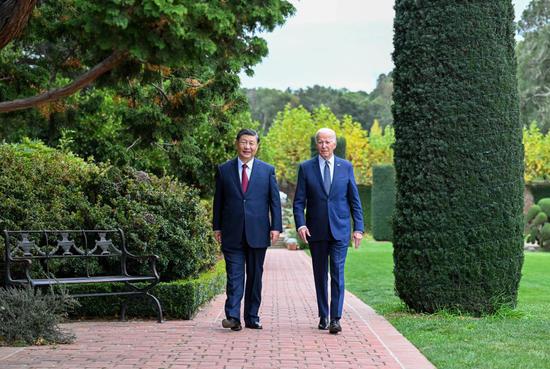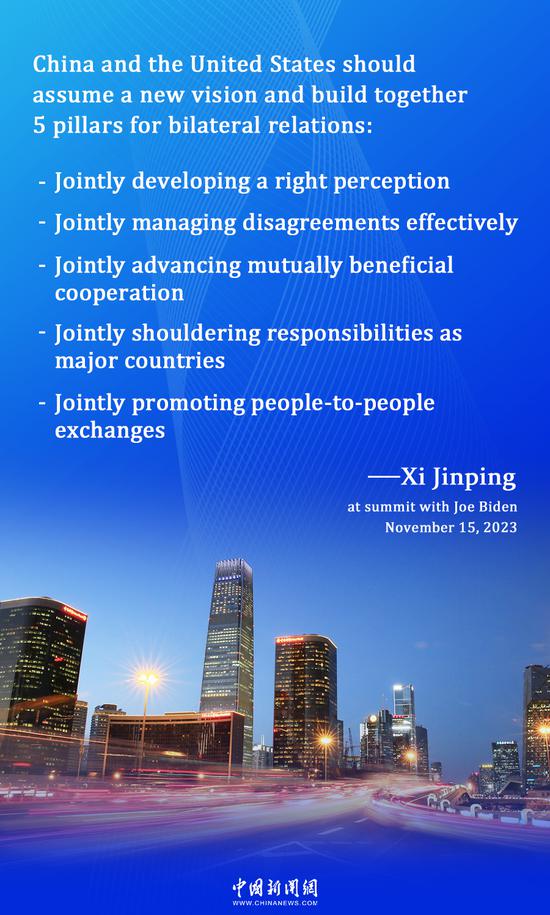RMB: Valuation to rise moderately, expert says
The recent strengthening of the Chinese renminbi against the U.S. dollar reflects strong market confidence in the potential of China's economic recovery and the improving outlook of the external environment. This upward momentum of the Chinese currency is likely to continue for the next few months, experts said on Tuesday.
After rising 800 basis points to touch 7.16 to the U.S. dollar on Monday, its best show in four months, the onshore RMB continued to gather in strength to approach 7.13 during the early trading hours on Tuesday.
The offshore RMB — the RMB traded outside the Chinese mainland market — also jumped more than 500 basis points on Monday to breach the 7.17 level against the greenback. It went on to hit 7.14 during the early trading session on Tuesday.
Zhou Maohua, a macroeconomic researcher at China Everbright Bank, said that domestic economic data shows that the recovery momentum of China's economic activities has increased significantly and the economy has reached its potential growth rate. These factors have contributed to the recovery in the RMB's performance in the foreign exchange market, he said.
Fan Ruoying, a researcher at the Bank of China, said the nation's economic recovery has been noticeable since the third quarter as policies introduced earlier to stabilize the economy have gradually started yielding results. Major macroeconomic indicators concerning consumption, investment and companies' profitability have shown marginal improvement. All these factors have supported the RMB's performance, she said.
On Monday, HSBC raised its forecast for China's 2023 economic growth rate from 4.9 percent to 5.2 percent, citing a rebound in consumption that is boosting overall domestic economic activity. HSBC also revised its forecast for China's 2024 GDP growth to 4.9 percent, from its previous estimation of 4.6 percent.
According to JP Morgan China's Chief Economist Zhu Haibin, growth in China's new energy vehicle, manufacturing and infrastructure investment has been quite noticeable this year. Consequently, JP Morgan has revised its forecast for China's 2023 GDP growth to 5.2 percent, up from its previous estimate of 5 percent.
According to Fawad Razaqzada, market analyst at financial services provider City Index, the market has been too bullish on the U.S. dollar. Latest data shows that the consumer price index in the United States has fallen faster than expected, cementing market expectations that the Federal Reserve will not raise interest rates again. Therefore, the interest rate gap between China and the U.S. will now gradually narrow.
Wang Tao, chief China economist at UBS Investment Bank, said that the U.S. dollar-renminbi exchange rate has remained around 7.3 this year, which can be partly attributed to the rebound in domestic demand and improving exports.
The U.S. dollar may start to weaken as the Fed lowers interest rates and U.S. economic growth slows down in 2024. The narrowed bond yield between China and U.S., the weakening U.S. dollar and recovered confidence in China's economic growth will together drive up the RMB's valuation, helping it to rise moderately against the greenback, said Wang.
The U.S. dollar to RMB rate is expected to be around 7.15 in 2024 and reach 7 in 2025, she said.
While Wang estimated that the renminbi will hover around 7.3 against the U.S. dollar at the beginning of 2024, China's central bank will not resort to the devaluation of RMB to boost export or economic growth. On the contrary, it will focus more on market confidence in the RMB's exchange rate and its stability, she added.
According to the Central Financial Work Conference held in late October, more efforts should be devoted to strengthening foreign exchange market management and maintaining the basic stability of the RMB exchange rate at a reasonable and balanced level.


















































 京公网安备 11010202009201号
京公网安备 11010202009201号